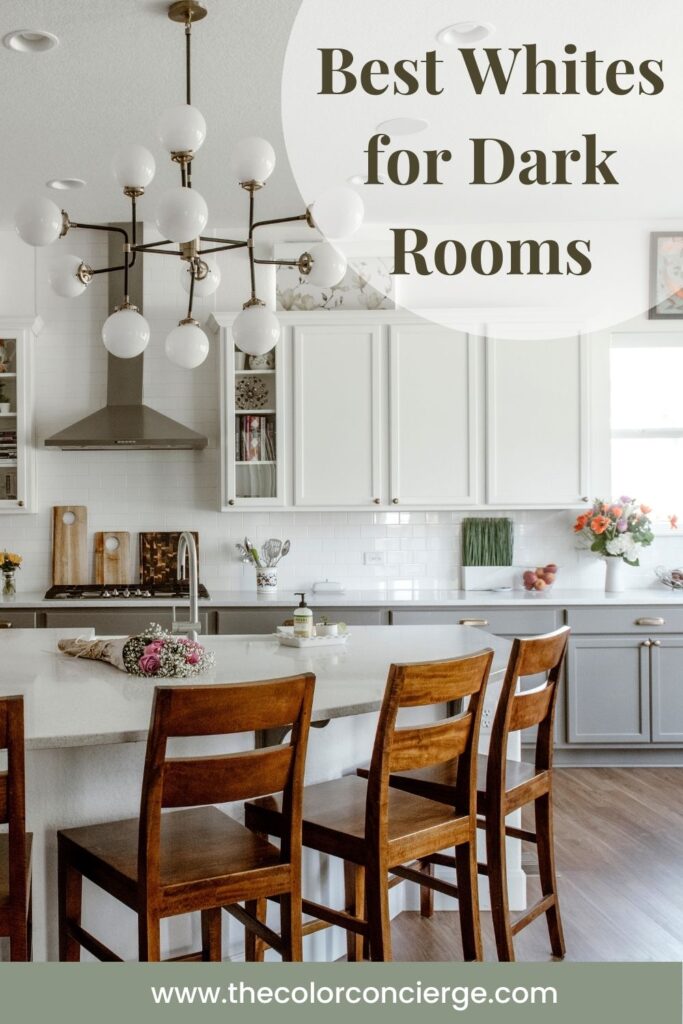
Choosing the perfect colors for your logo design is not just about picking your favorite colors or throwing a bunch of shades together and hoping for the best. It takes careful consideration, strategic thinking, and maybe a little bit of luck (or a lot of trial and error). In this colorful journey of logo creation, we will explore the rainbow of possibilities and help you paint a picture-perfect logo that will leave your competitors green with envy. So grab your paintbrushes and prepare for a hue-morous adventure into the world of color theory and branding!
Understanding Color Theory
Color theory is like a magical realm where hues, tints, and shades come together to create a symphony for the eyes. To truly master the art of color, one must understand the basics of how colors interact with each other. Here are a few key concepts to wrap your head around:
- Primary Colors: These are the MVPs of the color wheel – red, yellow, and blue. They are like the Kardashians of color theory, stealing the spotlight wherever they go.
- Secondary Colors: When primary colors get together and have a wild party, they create secondary colors like orange, green, and purple. Think of them as the rebellious teenagers of the color family.
- Complementary Colors: These colors are like peanut butter and jelly – they just go together. Complementary colors are opposite each other on the color wheel and create a high contrast, eye-catching effect when paired.
But wait, there’s more! Color theory also encompasses concepts like warm vs. cool colors, color harmony, and color psychology. It’s not just about making things look pretty – it’s about understanding the emotional impact colors can have on your audience.
So there you have it, a crash course in the wonderful world of color theory. Remember, when in doubt, just throw some glitter on it and call it a day!
Identifying Your Brand’s Personality
So you want to uncover the personality of your brand, huh? Well, get ready to dig deep because we’re about to embark on a journey through the depths of your brand’s soul. But don’t worry, we’ll make sure to bring snacks for the road.
First things first, take a good hard look at your brand’s values, vision, and mission. What makes your brand tick? Is it an adrenaline junkie, always seeking out new adventures? Or is it more of a chill couch potato, content with binge-watching the latest Netflix series? Whatever it is, make sure to jot it down and give it a big hug because that’s your brand’s essence right there.
Next, think about how your brand interacts with its audience. Does it crack jokes left and right, keeping everyone entertained? Or is it more of a suave, sophisticated type, always dressed to impress? Make a list of all the ways your brand communicates and interacts with others, because that’s where its personality truly shines.
Lastly, think about the overall vibe your brand gives off. Is it bold and daring, taking risks like there’s no tomorrow? Or is it more laid-back and approachable, welcoming everyone with open arms? Remember, your brand’s personality is what sets it apart from the rest, so make sure to flaunt it proudly like a peacock strutting its stuff.

Choosing Colors that Resonate with Your Target Audience
Have you ever walked into a room and instantly felt a connection with the colors around you? That’s the magic of . It’s like finding your soulmate, but in a hue.
When selecting colors for your brand, think about the emotions you want to evoke in your audience. Are you aiming for calm and serene vibes, or maybe you want to ignite a spark of creativity? Whatever it is, make sure your color choices align with the feelings you want to convey.
Remember, not all colors are created equal. Each shade has its own personality and can speak volumes to your target audience. Consider using a mix of colors to create a harmonious palette that will captivate and engage your viewers.
So, next time you’re brainstorming color schemes for your brand, think about what will make your target audience stop in their tracks and say, “Wow, that’s my color!” Because when it comes to choosing colors that resonate, it’s not just about what looks pretty – it’s about creating a connection that lasts.

Avoiding Common Mistakes in Color Selection
Choosing the right colors for your space can be a daunting task, but fear not! Here are some tips to help you avoid common mistakes in color selection:
First and foremost, avoid choosing colors solely based on trends. Just because pink and green are “in” this season doesn’t mean they will still be stylish next year. Stick to colors that make you happy and reflect your personal style. After all, you’re the one who has to live with them!
Another mistake to avoid is failing to consider the lighting in your space. What may look like a soft blue in the store could turn into a neon nightmare under your harsh overhead lighting. Always test paint colors in the actual room before making a final decision.
Lastly, don’t forget to consider the overall mood you want to create in your space. Bold, vibrant colors can energize a room, while soft, muted hues can create a cozy atmosphere. Mixing and matching different shades can add depth and visual interest. Don’t be afraid to experiment!

Evaluating Color Combinations for Harmony and Contrast
When it comes to , it’s like putting together the perfect outfit for a first date – you want to make a statement, but not too loud that it’s overwhelming. The key is finding that perfect balance between colors that play well together and those that pop against each other.
One way to achieve harmony in your color combinations is by sticking to a monochromatic scheme. This means choosing different shades and tints of the same color family, creating a seamless and soothing aesthetic. Think of it like a soothing lullaby, where all the colors blend together in perfect harmony.
On the other hand, if you’re looking to add some contrast to your color palette, try pairing complementary colors together. These are colors that sit opposite each other on the color wheel, creating a dynamic and eye-catching look. It’s like a spicy salsa dance, where each color takes turns leading and following, creating a vibrant and energetic vibe.
Remember, the goal is to have fun experimenting with different color combinations and finding what speaks to you. So go ahead, mix and match, play with shades and hues, and unleash your inner artist. Who knows, you might just discover the perfect color combo that not only looks great but also makes you feel like a million bucks!
Testing Your Logo Colors in Various Applications
So, you’ve finally settled on the perfect color scheme for your brand logo! Congratulations! Now, it’s time to put those colors to the test in various applications to see how they hold up. Here are a few fun ways to test your logo colors:
- Social Media Profiles: Update your profile pictures on all your social media platforms with your new logo. See how it looks against different background colors and in various sizes. Don’t be surprised if your logo suddenly becomes an overnight sensation!
- Merchandise Mockups: Get creative with some merchandise mockups featuring your logo. Slap your logo on everything from tote bags to coffee mugs and see how it looks in real-world scenarios. Who knows, you might just start a new trend!
- Collaborate with a Tattoo Artist: Take a leap of faith and collaborate with a tattoo artist to create a temporary tattoo of your logo. Test it out on a brave volunteer and snap some pics for your portfolio. Who says brand loyalty doesn’t last forever?
Remember, the key to successful branding is consistency. Make sure your logo colors remain true and vibrant across all applications. And most importantly, have fun with it! After all, who said testing your logo colors couldn’t be a little adventurous?
Finalizing Your Logo Color Palette
Picking the right colors for your logo can be a daunting task, but fear not! We’re here to help you finalize your logo color palette with ease.
First things first, think about the emotions you want your logo to evoke. Are you going for a bold and attention-grabbing vibe or a more subtle and sophisticated feel? Once you have that in mind, consider the following:
- Complementary Colors: Choosing colors that are opposite each other on the color wheel can create a dynamic and eye-catching logo.
- Analogous Colors: If you prefer a more harmonious look, go for colors that are next to each other on the color wheel.
- Monochromatic Palette: For a sleek and modern feel, stick to different shades of the same color.
Play around with different color combinations until you find the perfect one that speaks to your brand’s personality. Remember, your logo is the face of your business, so make sure it’s a reflection of who you are!
FAQs
Q: Why is color choice so important for logo design?
A: Well, imagine you’re trying to stand out in a sea of black and white. You need a pop of color to make a splash!
Q: Should I follow color trends or choose timeless colors for my logo?
A: Trends may come and go, but a classic color scheme will never go out of style. Just like a little black dress!
Q: How many colors should I use in my logo?
A: Rule of thumb: Keep it simple. Too many colors can be overwhelming, like a clown at a funeral.
Q: Should I consider the psychology of color when choosing colors for my logo?
A: Absolutely! Colors evoke emotions. Think red for passion, blue for trust, and yellow for happiness. Just don’t use green unless you want people to feel queasy!
Q: What if I can’t decide on colors for my logo?
A: When in doubt, go back to basics. Black and white never fail to make a statement. Plus, they’re like the salt and pepper of the design world!
Say goodbye to boring logo colors!
And there you have it, folks! No more settling for drab, uninspired colors for your logo design. By following these tips and tricks, you’ll be well on your way to choosing the perfect colors that truly represent your brand in a fun and playful way. So go forth and let your creativity shine through in every hue you pick. Remember, a colorful logo is a happy logo!












